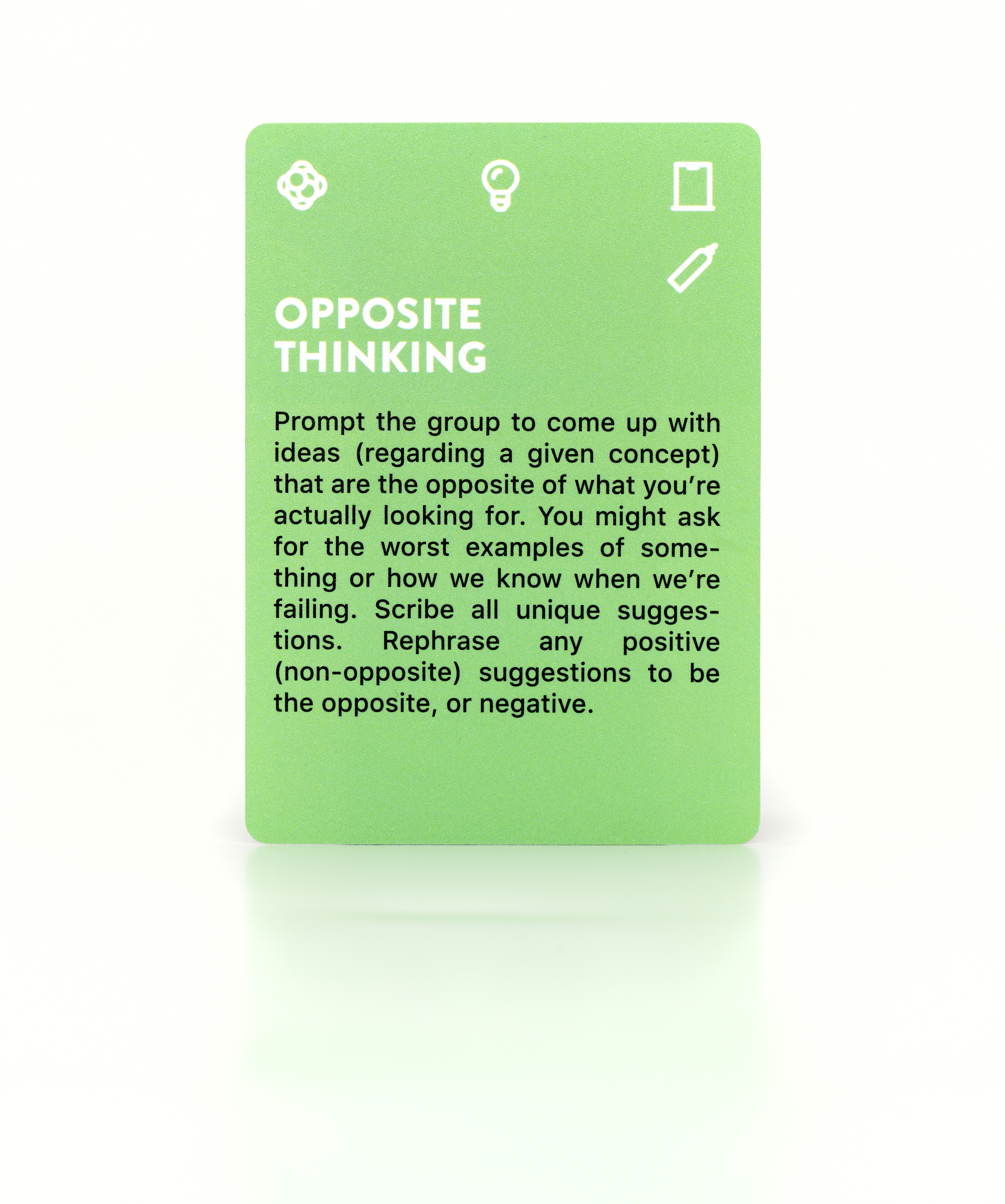September Card Of The Month: Opposite Thinking 🔁🤔
Each month, we highlight a card so you can get to know the deck one at a time. This month, allow us to introduce you to one of our favorite (& honestly, most fun) brainstorming processes: Opposite Thinking.
Here’s how to do it
With this card, it really is opposite day!
This activity is incredibly powerful and deceptively simple. Basically, you’re going to run a brainstorm by prompting the group using an inverse frame of the question you want to get at. So, for example, instead of asking the group about what makes a great leader, ask them to list all of the qualities that make a bad leader. Want to get at what makes for an effective meeting? Use Opposite Thinking and frame that question as “How could we make sure that this meeting goes terribly?” (People really go to town with this one!)
When it comes to participation, so often groups are listing positive attributes around a prompt. What’s awesome about Opposite Thinking is that it totally breaks out of that mold, plus, there are no wrong answers! Bad habits, no-go’s, and antithetical ideas are suddenly all valid contributions from the group. For most folks, this makes participation way less intimidating. (And, we’ll be honest, it’s typically a lot more fun/funny than a straightforward brainstorm!)
When it’s useful
Opposite Thinking is really great when you’re exploring an idea or concept that participants are used to discussing (ie. what makes a good meeting, effective team building, positive leadership qualities).
It’s great for when you want to identify truisms around a certain topic—for example, you could ask the group “What makes for an effective apology?” But now imagine how different the responses would be if you asked, “What’s the worst thing you could do when apologizing?”
Sometimes making the straightforward list can feel idyllic and ignorant of reality—we tend to capture the highest hopes/expectations of who we could be all the time. Including words like ideal/best/most can often garner unrealistic and utopic responses. Opposite Thinking gives you permission to flip the script and ask in worst/terrible/least terms—which not only creates an opportunity for levity and catharsis (we find it creates a chance for people to admit “I learned this the hard way” so we can avoid it in the future) but also creates a realistic list of things to avoid.
Prompt Pro Tip
Word your prompts in a future-focused/self-identified tense in order to avoid it feeling like a call-out session amongst participants. “If you wanted to be a terrible leader what would you do?” rather than “Tell me about all the worst leaders you’ve had in the past”.
Now it’s your turn!
Opposite Thinking works fantastically as a brainstorming exercise, and also makes for a great activity to kick off a workshop or session with! It gets the group sharing, raises the energy, and it’s a novel way to get everyone participating.
This month, we’re challenging you to include Opposite Thinking in an agenda! Bust it out for a brainstorm, create group norms by asking people what not to do, get the ball rolling and hands raised right away!
